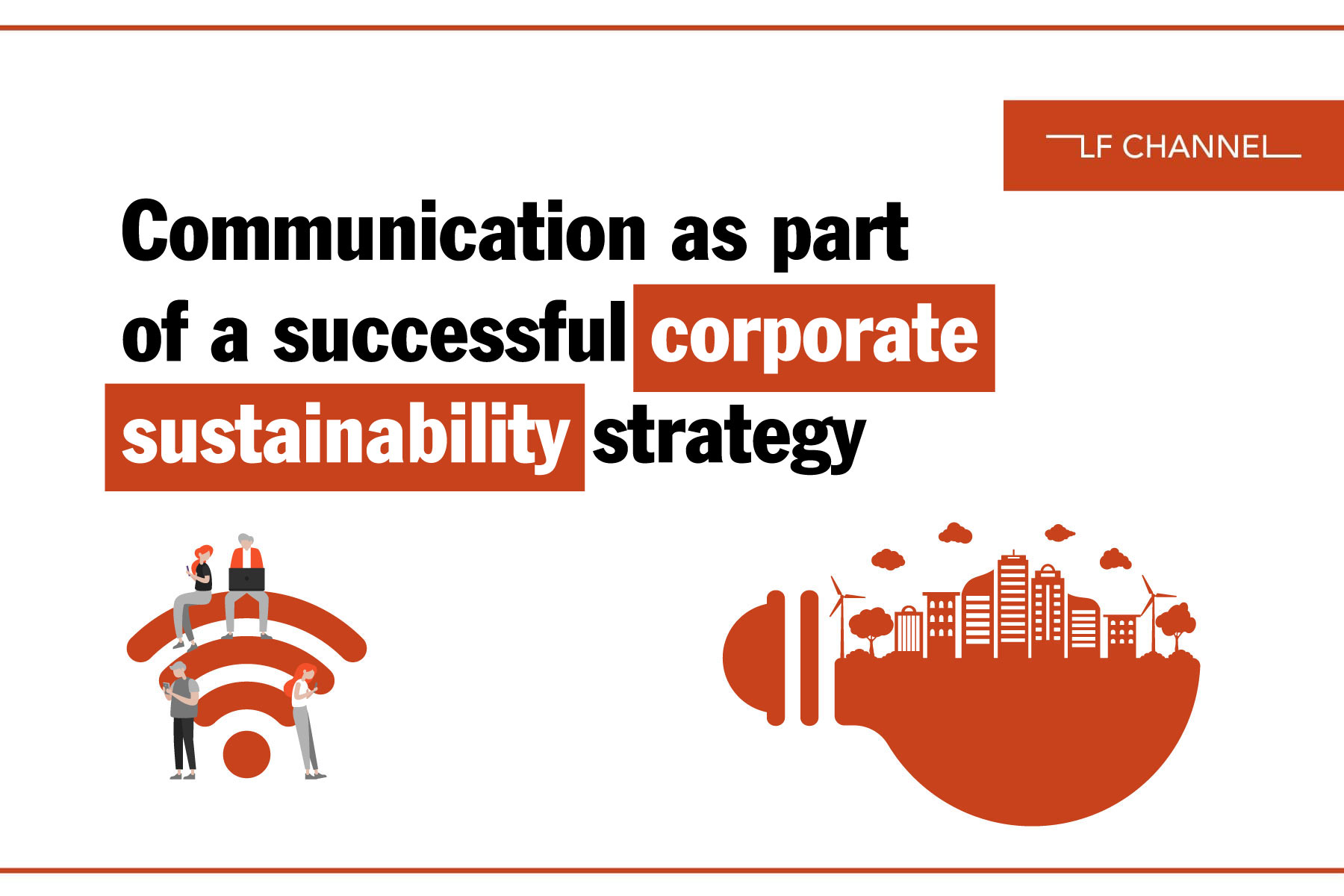The UN has set 2024 as the deadline for preventing a climate catastrophe: if we do not act in less than two years and reduce carbon and greenhouse gas (GHG) emissions, the damage to the planet will be irreversible. The report “Mitigating Climate Change”, published by the United Nations and the Intergovernmental Panel on Climate Change, gives a clear ultimatum: “It is now or never”.
With his future outlook, it is important that all parts of society get involved and work together to reduce our climate impact and improve sustainability. However, companies must be the ones leading the change. While individual actions can make a difference, organizations can take large-scale actions that have a direct effect on the climate.
Now is the time for companies to act, as highlighted at our client EcoVadis‘ annual conference Sustain. Within the sustainability measures, strategies and actions carried out by companies, the role of communication must be highly considered, as it can make the difference between the success or failure of all initiatives. Avoiding greenwashing, communicating internally in the right way, and supporting the publication of progress with data will boost the effect of the actions carried out.
Greenwashing: the main enemy of sustainability communication
Communication of sustainability measures established by a company must always be based on real facts. If a company announces that it will reduce its use of plastics or emissions, work with sustainable suppliers, or use recycled materials, it must prove it with facts and figures before promoting any action. Although this seems like an obvious premise, it has not been the rule in recent years, where greenwashing has been a recurring format.
What is greenwashing?
Greenwashing is a marketing and communication practice aimed at creating an illusory image of ecological responsibility. Companies or organizations publicly claim to care about the environment or society while their actions actually harm them and have direct negative effects on the planet and people.
This practice has severely damaged the credibility of companies that have adopted it and has made it difficult for organizations that actually act to improve their sustainability and communicate about their progress. However, this context has a winner: the planet. Society demands that companies demonstrate their impact on the environment or on the communities, which leads organizations that want to share their progress in sustainability to demonstrate it in a substantiated way, with visible and verifiable data and actions.
We no longer speak only of corporate social responsibility (CSR). Today, ESG (environmental, social and governance) policies have gained prominence, challenging companies to have a real impact on all aspects of their environment. Internal and external communication are key to a successful adoption and an impact beyond the company itself, as they allow to involve the different publics and stakeholders of the organization.
Internal communication, the basis for a successful adoption of sustainability
It is essential that all the people who are part of a company know and understand the measures and policies on sustainability to ensure their correct implementation. To explain the initiatives and standards that are adopted at each level, training the teams, monitoring the progress, and correcting mistakes is the only way to move towards corporate sustainability.
The communication department must work in coordination with the people responsible for sustainability to organize and carry out concrete and strategic actions for each department, explaining the details, policies, initiatives, and ways of working that will be adopted. The goal should be that all employees have sustainability embedded in their work and functions, so that the company’s mission and commitment are jointly promoted.
Involving supply partners is also key, as more than 70% of an organization’s social and environmental impact comes from its value chain, according to EcoVadis’ reports. Thus, conveying and communicating priorities to them and working to improve their practices will help not only the company itself, but also all partners who in turn engage with those suppliers. The goal is to ensure the real impact of corporate sustainability and to be able to communicate it publicly, based on proven facts.
Communicating real sustainability, key to securing the future
The importance of measuring and constantly improving
Once ESG policies have been adapted, companies must monitor and evaluate their results to constantly improve them. A single change is not enough to reduce the impact on the climate, it is necessary to be constant and aim for excellence in order to ensure the future of the planet.
Measuring the real impact also allows us to communicate externally based on facts. Companies that check their progress and generate detailed reports can communicate about their actual sustainability without fear of being accused of greenwashing. They can count on employees and business partners as prescribers who can confirm their actions and demonstrate results.
This allows them to approach customers who value sustainability in their purchases, ensuring that they are helping to create a greener world and a fairer society. It also positions the company as a reference for other organizations in the sector or competitors, who see how sustainability is a real strategic advantage.
The time to act is now
The road to sustainability may seem difficult, but it is essential to start walking it right now. The future of the entire planet is at stake and companies must act, relying on communication to ensure that their impact is real. An environmental, social and governance strategy must be based on internal and external communication to achieve success, avoid greenwashing and build a better future.
At LF Channel we have a sustainability strategy, with the aim of taking care of our planet, if you want to find out more you can access the sustainable development objectives that we have in the agency.
